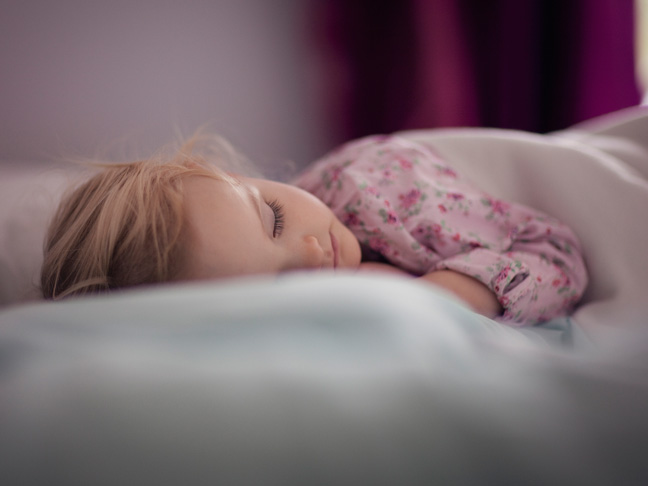Bedwetting is fairly common in young children. Although many kids are fully toilet trained by age 5, some of them wet the bed between the ages of 5 and 7 and a small percentage of children continue to wet the bed after age 7.
There are two different categories of bedwetting: primary and secondary. Primary bedwetting means that the bedwetting has been ongoing since early childhood and the child has not been dry at night for any significant amount of time. Secondary bedwetting, on the other hand, refers to bedwetting that occurs after the child has been dry at night for an extended period of time (at least six months).
While bedwetting is only linked to an underlying medical condition in about 1 percent of cases and often resolves on its own, it helps to know some potential causes.
Causes of primary bedwetting:
Primary bedwetting is often related to physical immaturity. It’s important to remember that bedwetting is not related to laziness or behavior problems. All kids are different and some kids need more time to stay dry at night.
1. Low hormones
Some kids don’t produce enough of the hormone that slows nighttime urine production until they’re older.
2. Small bladder
Your child’s bladder might not be developed enough yet to hold urine at night.
3. Inability to recognize full bladder
Many young children simply do not wake up when their bladders are full.
4. Holding during the day
Many small children are far too busy playing and having fun to stop and empty their bladders each time they get the urge. When their bodies are relaxed during sleep, the bladder finally empties.
Causes of secondary bedwetting:
Secondary bedwetting can be a symptom of an underlying medical condition or an emotional problem.
1. Stress and/or anxiety
A stressful home life, stressful school experiences, bullying, and other sources of conflict can result in bedwetting.
2. Transitions
Many kids experience regressed behavior when big transitions occur. Moving, a new baby in the family, and starting a new school for example.
3. Child abuse
Physical and sexual abuse can trigger bedwetting.
4. Diabetes
Frequent urination is a common symptom of diabetes.
5. Urinary tract infection
This infection can make it difficult for children to control urination, during the night and during the day.
6. Chronic constipation
Long-term constipation can cause muscles to weaken, which can result in bedwetting.
7. Illness and/or exhaustion
Kids today are very busy and often exhausted.
Family matters:
Bedwetting does tend to run in families. Often, a child who wets the bed has a parent who also wet the bed as a child and the bedwetting tends to resolve around the same age that the parent achieved nighttime control.
When to see a doctor:
More often than not, bedwetting is not a huge cause for concern. Most kids outgrow it on their own, though some need help. Check with your pediatrician if any of these cases apply to your child:
• She begins to wet the bed after six months of being dry at night.
• He continues to wet the bed beyond age 7.
• She complains of painful urination, or her urine is pink or red.
• He’s experienced long-term constipation.
• She pees very frequently (or has accidents) during the day.
The best thing parents can do is to provide support and understanding. While changing the sheets each night might feel like a hassle, your child is likely feeling embarrassed about her bedwetting. A little bit of empathy can go a long way toward helping your child through this childhood obstacle.
Photo: Getty








